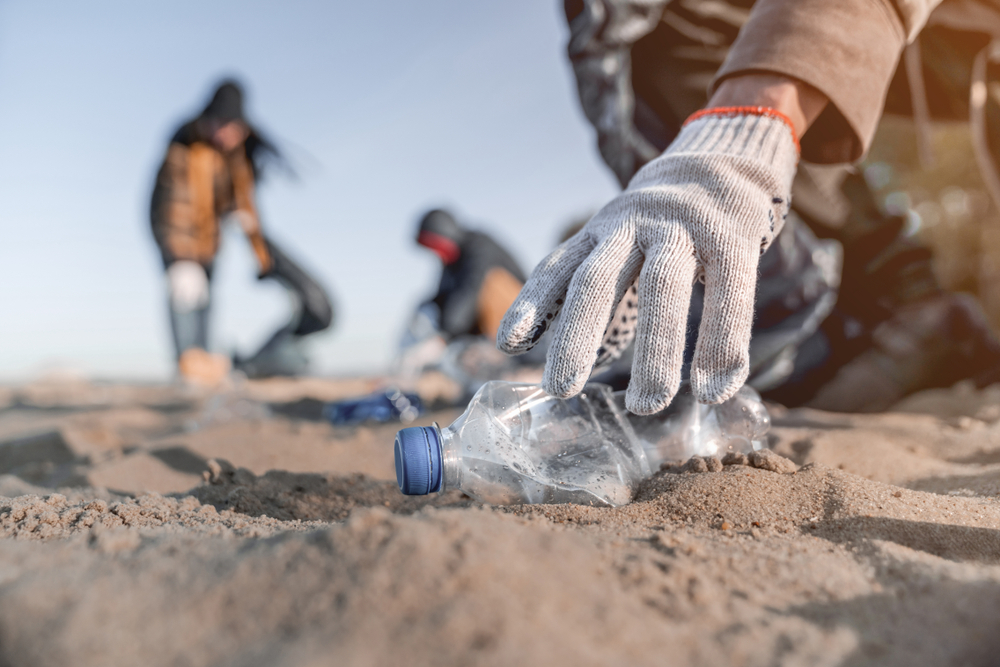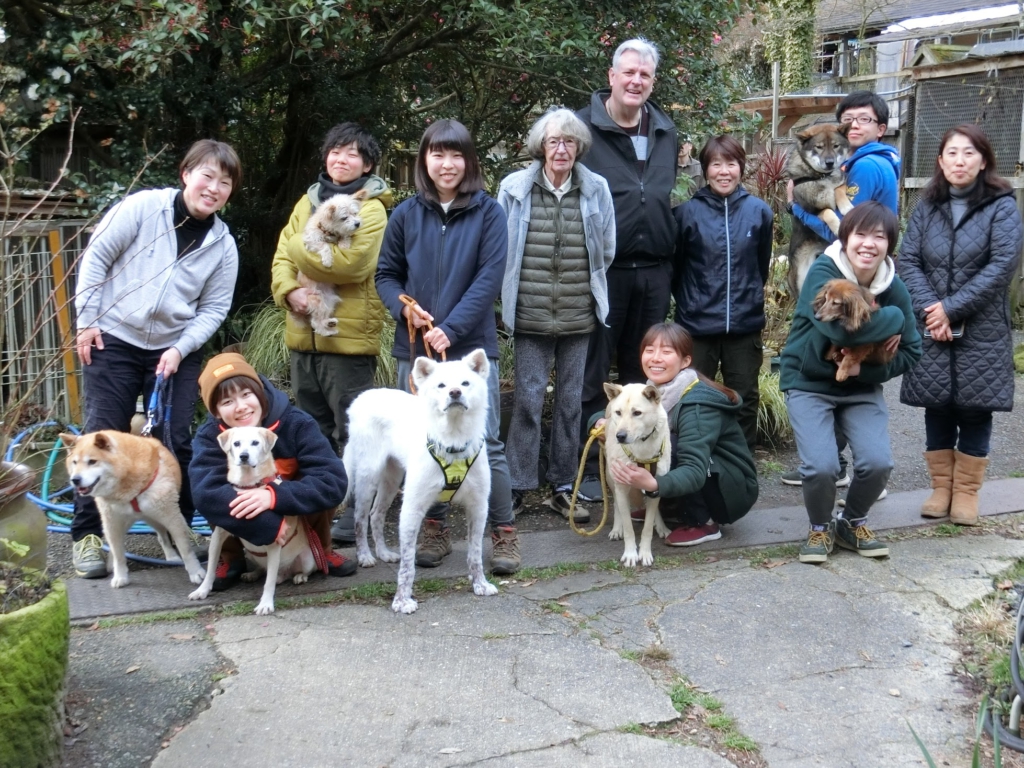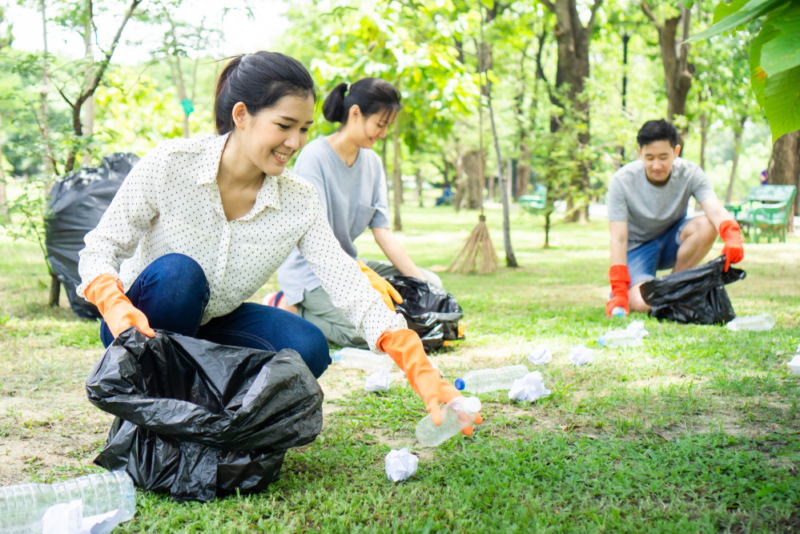However, some might find it tricky to find volunteering activities, especially if they don’t speak Japanese. From feeding the needy, to cleaning beaches, to taking care of abandoned cats and dogs, we’ve gathered a handful of organizations that address a range of social causes that anyone can get involved in, even if you don’t speak Japanese.
1. Giving Back to the Community With ‘Second Harvest Japan’
Second Harvest Japan (2HJ) is Japan’s first nationwide food bank. They receive surplus food donated by retailers, manufacturers, farmers, and individuals and distribute them to those in need. Their recipients include welfare agencies, orphanages, the homeless, and women’s shelters.

Why Is This Important?
While it may seem like Japan is a wealthy country, there are plenty of people in need of basic sustenance. According to OECD (Organization for Economic Cooperation and Development) figures, Japan’s poverty rate was at 16% in 2015, which is 1 in every 6 people. And perhaps even more surprisingly, among the approximately 20 million people living below the poverty line in Japan, only about 4,500 are homeless. This means the majority of those in need are hard to see or access.
Second Harvest Japan operates as a food bank. Companies and individuals donate surplus food to them, and they distribute it to people in need as well as organizations that help those who are food insecure.
What is surplus food? Surplus food is food that is still perfectly edible, but due to various reasons such as strict delivery deadlines not being met, leftover products, inventory write-downs, faulty packaging, and so on, they are thrown away. This results in a huge amount of waste being generated – but that’s a different issue for another story!
How You Can Get Involved
The easiest way to support Second Harvest Japan is to donate your time. Food supplies are distributed via Harvest Pantry to economically-disadvantaged individuals and families. You can get involved in a variety of work such as delivery, packing, prepping, etc. They explicitly say that Japanese is not a prerequisite for this type of work.
2. Keep the Rivers and Beaches Clean with ‘Tokyo River Friends’ and ‘SEGO Initiative’
Tokyo River Friends organizes regular river clean ups which are usually followed by fun activities such as picnics or barbecues along the rivers or Tokyo bay waterfronts.
SEGO Initiative grew out of the Fujisawa Beach Cleaning Project, which organizes large biannual beach, park and “jinja” (shrine) cleanups on the Fujisawa Enoshima coast in Shonan, while providing scientific data for global research on marine ecosystems.

Why Is This Important?
As pristine as the rivers of Japan may seem, you just have to take a closer look to find an assortment of trash dotted along the riverbanks. A survey showed that the top three types of trash found along riverbanks, beaches, and lakes were:
1. Drinks bottles (PET)
2. Plastic bags
3. Single-use cups for containing drinks
Tokyo River Friends reported collecting approximately 9,000kg of trash from their Arakawa river cleanups in 2020. The Ministry of Environment also estimates that up to 60,000 tons of Japan’s plastic waste end up in the ocean each year.
How You Can Get Involved
Tokyo River Friends have cleanups scheduled on weekends every one to two weeks. Simply check their schedule for details and show up at the specified time. Bring some snacks (preferably with minimal packaging!) and enjoy a lovely picnic with the crew afterward!
Apart from their large biannual community cleanup events, SEGO Initiative helps corporations organize bilingual, family-friendly volunteer events which are great for team-building and employee engagement while giving back to the local community. SEGO Initiative also has projects in other areas such as supporting organic farms in the Shonan area and supporting cocoa farmers in developing countries.
3. Save Lives With ‘TELL (Tokyo English Lifeline)’
TELL has been providing effective support and counseling services to Japan’s international community, helping to address mental health needs including suicide prevention. The TELL Lifeline offers free, anonymous, and confidential telephone counseling and information for those who call.

Why Is This Important?
Suicide is a major public health issue in Japan. With the highest suicide rate among the G7 countries, Japan is the only country where suicide is the leading cause of death among young people. As high as one in four people in Japan “seriously considers suicide.” Yet these deaths are preventable with social countermeasures, which include something as simple as having someone to talk to.
How You Can Get Involved
You can volunteer at TELL on the Lifeline, work on special projects, or at fundraising events. All Lifeline Support Workers are required to undergo thorough training and apprenticeship before going on the line. Volunteers are also needed at TELL’s events throughout the year which are crucial to their fundraising and awareness efforts. There are also often opportunities for volunteers to help out in the TELL business office, especially when they have special projects in hand.
4. Organize Exciting Events for ‘Run For The Cure Japan (RFTC)’
Run For The Cure Japan (RTFC) is Japan’s leading breast cancer foundation. It creates and runs community outreach programs and education initiatives, designs programs to help increase the quality of life of breast cancer patients and survivors, fund mammograms, and donates funds to organizations that promote activities specific to the mission of the Foundation.

Why Is This Important?
Breast cancer is diagnosed in 1 in 11 Japanese women and No. 1 killing cancer between the ages of 25 and 55. RTFC brings greater awareness, high-quality screening, early detection and timely treatment to this life-threatening disease.
How You Can Get Involved
RTFC runs a number of dazzling events throughout the year, such as the Pink Ball (the Foundation’s largest charity event of the year) and the Tokyo Run (an annual race around the Imperial Palace), and need volunteers to help out. This is great for anyone who has or wants experience in event management in an international setting, while contributing to a significant cause.
5. Find Your Match at ‘HandsOn Tokyo’
HandsOn Tokyo partners with a large number of organizations and causes, so that volunteers can pick and choose what causes and activities to take part in by signing up via their calendar. The events and opportunities include supporting marginalized children, the disabled, elderly citizens, and other groups in need.

Why Is This Important?
Below the surface of the bustle and the dazzle of any big city, including Tokyo, there are many who are marginalized by society, particularly children, the elderly, and the disabled. HandsOn believes in making volunteering as accessible as possible for those who want to do meaningful work, foster volunteerism, and develop leaders to serve the needs of our community.
How You Can Get Involved
After you have registered with them as a volunteer, check their calendar to find events that suit your schedule, interest and skill set, and simply sign up.
6. Put Your Fundraising Skills to Work at ‘Refugee Empowerment International (REI)’
Refugee Empowerment International (REI) is an independent non-profit organization that funds projects for people displaced by conflict around the world. REI raises funds to support projects that provide opportunities for people to lead an independent normal life while staying near to home and their loved ones.

Why Is This Important?
An average of 30,000 people are uprooted everyday as a result of war and armed conflict, decimating lives and entire communities. The UN estimated that 79.5 million people were forcibly displaced worldwide at the end of 2019 as a result of persecution, conflict, violence, human rights violations. This constitutes one percent of the global population or more than 60 percent of the entire population of Japan.
How You Can Get Involved
REI needs volunteers with skills such as fund-raising, CSR, PR, marketing, and event organizing. The time required for these roles varies from 4–15 hours per week. They also offer internships to students studying related topics or with an interest in conflict and displacement issues.
7. Play With Furry Friends at ‘Animal Refuge Kansai (ARK)’
Animal Refuge Kansai (ARK) is a non-profit, non-governmental private organization that aims to form a ‘network of people who love animals, believe in sharing their lives with them, and who work actively to rescue them from suffering’. In their Osaka shelter, they house around 121 dogs and 87 cats plus 8 rabbits. In Tokyo, they don’t have a shelter but they do have an office that organizes fostering and adoption programs for their animals. Since 1991, ARK has rehomed over 3,200 dogs and 1,300 cats.

Why Is This Important?
A tragic number of animals are put down every year all across the country. In 2017 alone, 8,362 dogs and 34,854 cats were put to death, according to the Environment Ministry. This is often due to people buying puppies and kittens without being fully aware of the commitment needed to raise them, and when it gets too tough they end up abandoning them or giving them up to shelters or organizations such as ARK.
How You Can Get Involved
ARK needs volunteers to work at their shelter in Osaka to help with dog-walking, playing with dogs and cats, and cleaning. They also organize fostering for those in Osaka and Tokyo who miss having a pet, but cannot commit to adopting. ARK takes full responsibility for vet and food costs and is here to give advice and help anytime.
Roll Those Sleeves Up!
There is no shortage of volunteer opportunities in Japan, and this is by no means an exhaustive list of where you can volunteer your time and expertise in. There are plenty of other organizations doing amazing work, including many that accept non-Japanese-speaking volunteers. Hopefully, this provides you with a good starting point to get out, get involved, make some new friends while getting some meaningful work done!
If you want to give feedback on any of our articles, you have an idea that you’d really like to see come to life, or you just have a question on Japan, hit us up on our Facebook!
The information in this article is accurate at the time of publication.

